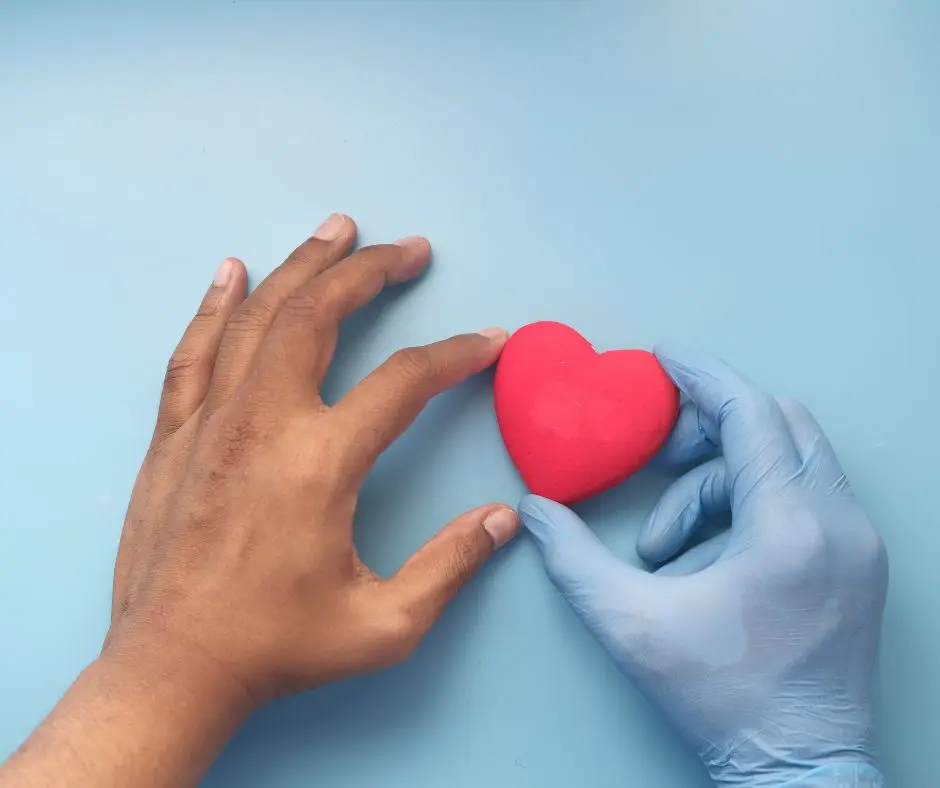
How does organ donation work in the Netherlands?
Share on social media:
If you are over 18 and have been registered with a municipality in the Netherlands for at least 3 years, you become an organ donor. Unless you say you do not want to. Read in this article how organ donation works, and how you can indicate that you do not want to become a donor.
If you are over 18 and have lived in the Netherlands for at least 3 years, you can become an organ donor
In the Netherlands, everyone who is 18 years old receives a letter from the government. In it you are asked if you want to become an organ donor after your death. Organ donation involves giving your organs or tissue to someone else after your death. The other person needs these organs or tissue to get better or stay alive.
People who came to the Netherlands (more than) 3 years ago and are registered with a municipality are also asked if they want to become organ donors if they are 18 years of age or older.
Young people between the ages of 12 and 18 can indicate before they turn 18 that they want to become donors after their death. They must also have lived in the Netherlands for at least 3 years.
Organ donation in the Netherlands is only possible if you die in the hospital. So not if you die at home or somewhere else. This is due to extra blood that the organs need between the time of death and transplantation.
If you have been in the Netherlands for 6 months, you can also become an organ donor
If you are not a Dutch citizen and have lived in the Netherlands for 6 months, when you die, the hospital must first investigate whether there is a letter with your signature stating that you do or do not want to become a donor. The hospital must also find out if there is a
If you are on holiday in the Netherlands, you can also become a donor.
If you are in the Netherlands temporarily, e.g. for a holiday, you can also be a donor. Your next of kin must then give permission for donation. If your next of kin cannot be reached, donation is not possible.
In the Donor Registry, you indicate whether or not you want to become an organ donor
In the Donor Registry there are 4 options:
1. Yes, you want to become a donor.
This option allows you to specify which organs or tissues you do or do not want to donate after your death.
2. No, you do not want to become a donor.
The hospital will not donate organs after your death.
3. Your partner or family decides after your death.
If you have a partner, you can let that person decide on donations after your death. If you do not have a partner, your family will decide on the donation.
4. You choose one person to decide after your death.
You can choose to let one person decide on donation after your death, such as a friend or family member. Then you enter the name and contact information in the Donor Registry. The hospital will contact that person after your death.
If you do not fill in anything, you are automatically a donor
If you do not fill in a choice, the Donor Registry says 'No objection'. This means that all your organs and tissues can be donated after your death. Then you are automatically an organ donor.
Next of kin influence choice of donation
At the hospital, the doctor discusses with next of kin what choice the deceased person made about organ donation. The doctor assumes what is in the Donor Registry. If the Donor Registry states that the deceased person did not want to be a donor, family members cannot change this. If it says 'Yes' or 'No objection', organs or tissue can be donated unless next of kin object to that decision.
In some situations, you as a next of kin can object to the deceased's choice:
If you are sure that the deceased did not want to become a donor, but the Donor Registry says 'Yes' or 'No objection'. Then you have to show proof to the doctor. For example, personal letters.
If the deceased is under 16 years of age. Children aged 12 to 16 may voluntarily fill in their choice in the Donor Registry. If they have filled in 'Yes' and you disagree, you can object.
In these situations, you as the next of kin always decide on the organ donation of the deceased:
If the Donor Registry states that the partner, family or you decide on organ donation after his or her death.
If the deceased is under 18 years of age.
If the deceased was between the ages of 12 and 18 and did not make a choice.
If the deceased is not yet on the Donor Registry, e.g. because the person had just turned 18 or had lived in the Netherlands for less than 3 years.
If in the 4 weeks before death, the deceased changed his or her choice via a paper form. The modified choice is then not yet visible in the Donor Registry.
If the deceased person
Learn more about deciding on organ donation in the case of the legally incapacitated on the Donor Registry website.